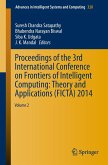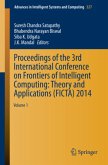The 1994 GWIC was held June 6th, 7th and 8th, 1994, on the Campus of the UNLV. It was sponsored by UNLV, UNR, and ACM-SIGART. The keynote speakers were Prof. Bonnie Weber of the University of Pennsylvania, Prof Stuart Shapiro, Director of the Center for Cognitive Science at SUNY at Buffalo, and Prof. Nicolas Bourbakis of SUNY at Binghamton. Dr. Bonnie Webber, the first keynote speaker, presented the first talk of the conference Monday morning June 6th, entitled "Instructing Animated Agents: Natural Language and Human Figure Animation". Her one hour lecture and the computer graphics video in which figures emulating realistically humans were able to successfully perform a number of human motions and functions, were very well received by the participants. Dr. Stuart Shapiro, presented his keynote speech, entitled "Formalizing English", Tues day morning, June 7th. His objective was to construct a natural language using an intelli gent agent. His talk was of great interest and drew a great deal of discussion and questions by the participants. "The Role of AI in Multimedia Information Systems", was the topic presented by the third keynote speaker, Dr. N. Bourbakis, Wednesday morning June 8th. He addressed the changes in computing with the introduction of Multimedia and the usage of AI to store and retrieve intelligently massive visual, audio, and other data.
Bitte wählen Sie Ihr Anliegen aus.
Rechnungen
Retourenschein anfordern
Bestellstatus
Storno








